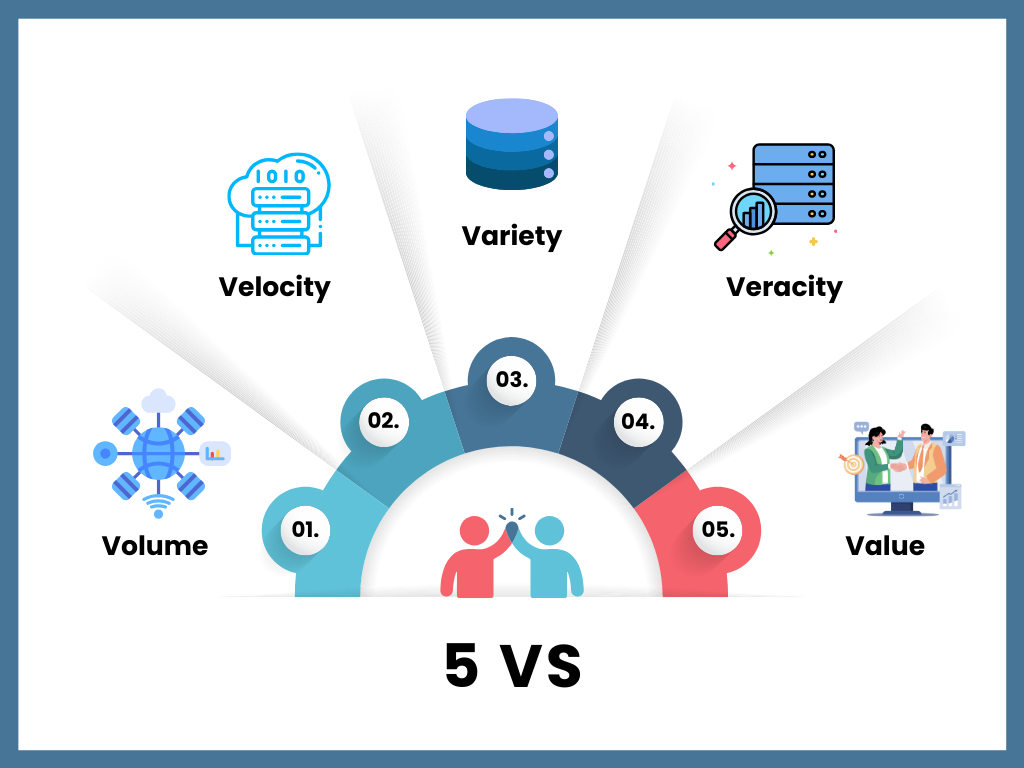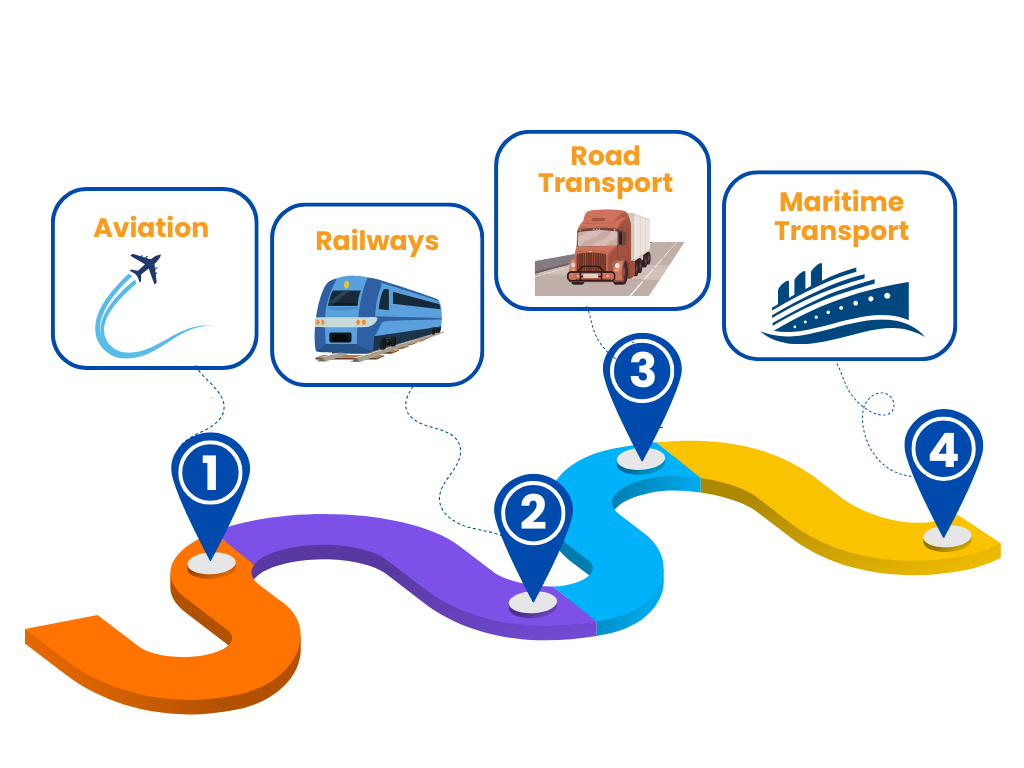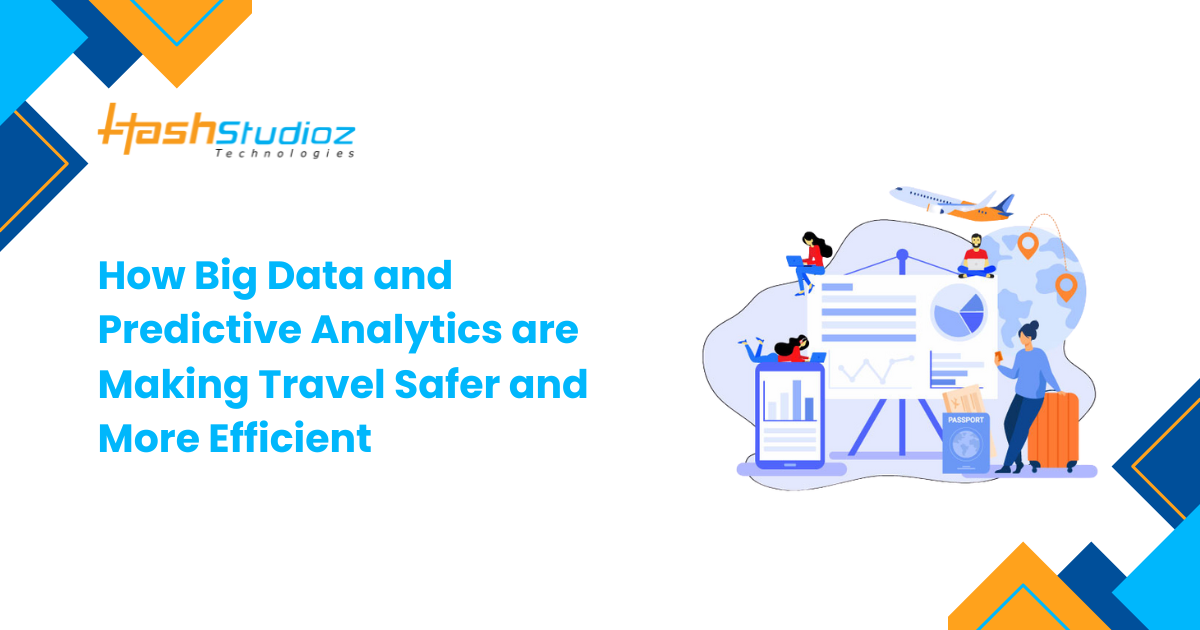The travel and tourism industry is undergoing a transformative shift, thanks to the infusion of big data and predictive analytics. From booking a flight to navigating through airports or riding a train, modern travelers increasingly benefit from intelligent systems designed to offer personalized, safe, and seamless experiences.
At the heart of this evolution lies travel technology services, an ecosystem of digital solutions powered by analytics that interprets vast volumes of data to generate actionable insights. These tools are helping travel providers not only enhance customer satisfaction but also improve safety protocols and operational efficiency.
- 83% of travel brands using predictive analytics have seen a rise in customer satisfaction.
- Predictive maintenance has helped airlines cut unplanned delays by 35%.
- Big data adoption in travel technology services is expected to reach $11.4 billion by 2027.
- Airports using predictive crowd analytics have reported 40% shorter wait times at security checks.
- Rail companies report 20-30% reduction in track failures using predictive infrastructure maintenance.
Table of Contents
Understanding Big Data and Predictive Analytics
What is Big Data?
Big Data refers to extremely large and complex datasets that traditional data management tools and techniques cannot efficiently handle. These datasets are distinguished by what is commonly known as the 5 Vs:

- Volume – Refers to the massive amount of data generated every second from countless sources, including social media, mobile devices, sensors, online transactions, and more. In the travel sector, this can include data from booking systems, GPS trackers, airline ticket sales, and hotel reservations.
- Velocity – Highlights the speed at which data is created, collected, and processed. For travel technology services, real-time updates such as flight status notifications, weather alerts, and security changes are critical examples of high-velocity data streams.
- Variety – Emphasizes the diverse forms of data available, ranging from structured data (like spreadsheets and databases) to unstructured data (such as images, videos, social media posts, and customer reviews). Travel companies must manage this variety to deliver seamless customer experiences.
- Veracity – Concerns the accuracy, quality, and reliability of the data. Inaccurate data can lead to poor business decisions or customer dissatisfaction. Travel technology services ensure that information like weather updates, travel advisories, or booking confirmations is trustworthy.
- Value – Represents the actionable insights that can be extracted from raw data. Simply accumulating vast amounts of data is not beneficial unless it can be analyzed to create real business value, such as optimizing routes, enhancing customer satisfaction, or predicting market trends.
What is Predictive Analytics?
Predictive analytics is the practice of using historical data, statistical algorithms, and machine learning techniques to predict future outcomes. Rather than solely understanding what happened in the past, predictive analytics answers questions about what is likely to occur in the future.
Key functions of predictive analytics include:
- Identify Risks and Opportunities: Travel agencies and airlines use predictive models to foresee demand surges, potential disruptions (like natural disasters), or mechanical failures, allowing them to proactively manage risks and seize new market opportunities.
- Improve Decision-Making: By utilizing sophisticated predictive models, travel companies can make data-driven decisions, such as adjusting pricing dynamically, allocating resources during peak times, or launching new routes.
- Personalize Customer Experiences: Predictive analytics allows companies to anticipate customer needs. For example, if a traveler regularly books beach vacations during winter, the system can proactively suggest attractive offers or destinations aligned with their preferences.
- Enhance System Efficiencies: Predictive analytics helps optimize operational processes such as fleet management, hotel staffing, maintenance schedules, and inventory management, thereby reducing costs and improving overall service quality.
The Intersection of Big Data and Travel Technology Services
Travel technology services leverage big data and predictive analytics to deliver smarter, more efficient solutions across the transportation and travel industry. These services cater to a broad range of sectors, including travel operators, airports, railway networks, maritime ports, and ride-sharing platforms.
This integration allows travel technology services to:
- Enable Real-Time Tracking: Monitor vehicles, assets, and passengers with high accuracy, improving operational visibility.
- Forecast Demand and Adjust Resources: Predict passenger flows and optimize resource allocation, from staffing to fleet management.
- Identify and Resolve Safety Vulnerabilities: Detect potential safety risks early and implement preventive measures.
- Deliver Hyper-Personalized Experiences: Tailor recommendations, promotions, and services to individual traveler preferences.
By utilizing IoT sensors, GPS data, customer feedback, weather information, and social media feeds, travel tech platforms generate deep insights that help reshape the travel experience.
Enhancing Safety in the Travel Industry
Safety is a foundational concern for both travelers and service providers. Through big data and predictive analytics, travel technology services are transforming how risks are anticipated and addressed — leading to more proactive, real-time safety solutions across all modes of transportation.
Real-Time Threat Detection
- Surveillance and Monitoring: Advanced facial recognition and behavioral analytics are deployed in airports and transit hubs to detect unusual activity or potential threats.
- Cybersecurity: Predictive models help safeguard digital infrastructure, identifying potential breaches and malicious patterns before damage occurs.
- Crowd Management: Data-driven tools analyze crowd density to prevent overcrowding, reduce the risk of stampedes, and optimize flow in high-traffic areas like terminals and stations.
Predictive Maintenance for Transportation
- Aircraft and Trains: Sensor-equipped components transmit data to predict failures, allowing maintenance teams to intervene before breakdowns occur.
- Vehicles: Fleet operators use analytics to automate maintenance scheduling, reducing accident risks and improving safety records.
- Maritime Safety: Big data supports the monitoring of ship engines, hull conditions, and weather trends, ensuring safe and efficient navigation.
Crisis Management and Emergency Response
- Weather Prediction: Airlines and logistics providers utilize predictive weather analytics to reroute flights or shipments and avoid disruptions.
- Natural Disasters: Data models track seismic and environmental signals, enabling early alerts and coordinated evacuation strategies.
- Pandemic Preparedness: During health crises, predictive analytics assists with contact tracing, quarantine enforcement, and the safe routing of travelers based on exposure risk.
Improving Efficiency Across the Travel Ecosystem
Efficiency stands at the core of modern travel technology services. By integrating big data and predictive analytics, travel providers can reduce operational costs, streamline workflows, and enhance traveler experiences through automation and real-time decision-making.
Dynamic Pricing and Inventory Management
- Airlines and Hotels: Predictive models adjust pricing in real-time by analyzing booking patterns, seasonal trends, and competitor rates—maximizing revenue and occupancy.
- Rental Services: Car and bike rental operators leverage usage and location data to ensure optimal fleet distribution and availability.
- Travel Packages: Agencies curate personalized deals based on user behavior, past searches, and booking history—improving conversion rates.
Optimizing Flight and Route Planning
- Air Traffic Management: Big data helps aviation authorities reduce delays, improve flight scheduling, and cut fuel costs by enabling data-informed route optimization.
- Smart Route Suggestions: GPS, traffic, and weather data allow travel platforms to suggest faster or safer alternate routes for buses, shuttles, and taxis.
- Multimodal Transport Coordination: Predictive systems ensure smooth transitions between various travel modes (e.g., bus to train), reducing layover time and increasing traveler satisfaction.
Streamlining Check-In and Security
- Biometric Verification: Facial recognition and fingerprint scanning accelerate passenger identification, minimizing wait times at check-in and boarding gates.
- Self-Service Kiosks: Data-driven staffing and system load predictions ensure sufficient kiosks are functional during high-traffic periods.
- Baggage Handling: Predictive analytics anticipates baggage volumes and proactively manages routing and sorting—reducing lost luggage and processing delays.
Impact on Different Modes of Travel
Big data and predictive analytics are revolutionizing the travel sector across all modes of transportation. Whether in the air, on rails, roads, or at sea, modern travel technology services leverage data to improve performance, safety, and user satisfaction.

Aviation
- Flight Delay Prediction: Airlines utilize weather forecasts, air traffic data, and historical trends to anticipate delays, allowing for real-time rescheduling and customer notifications.
- Fuel Optimization: Big data models calculate optimal fuel loads and flight paths, reducing emissions and operational costs.
- Customer Engagement: Airlines analyze individual preferences and travel history to personalize services such as seating, meals, and entertainment.
Railways
- Predictive Track Maintenance: AI-powered systems monitor vibrations and structural anomalies to predict track faults before they lead to failures.
- Capacity Forecasting: Passenger flow analytics help railway operators adjust train sizes and frequency to match demand.
- Onboard Services: Feedback and sentiment analysis tools ensure a more responsive and comfortable travel experience.
Road Transport
- Traffic Forecasting: Real-time GPS data, weather inputs, and event schedules help navigation systems suggest efficient routes and accurate ETAs.
- Driver Behavior Analysis: Fleet and insurance providers monitor driver patterns to reduce reckless behavior and enhance road safety.
- Shared Mobility Optimization: Ride-hailing platforms use demand forecasting to balance driver availability, apply dynamic pricing, and minimize passenger wait times.
Maritime Transport
- Port Traffic Analytics: Predictive models anticipate ship arrivals and departures to minimize port congestion and reduce turnaround time.
- Route Optimization: Weather patterns, sea currents, and piracy alerts are analyzed to determine safer and more fuel-efficient routes.
- Container Tracking: IoT-enabled sensors provide real-time updates on cargo status, ensuring transparency in supply chain and inventory management.
Role of Travel Technology Services in Implementation
The successful application of big data and predictive analytics in the travel industry relies heavily on robust travel technology services. These services provide the essential tools, infrastructure, and frameworks needed to harness data for smarter, safer, and more efficient operations.
Components of Travel Technology Services
- Data Integration Platforms: Aggregate and consolidate data from diverse sources such as CRM systems, IoT devices, social media platforms, and transactional databases—enabling a unified view.
- AI and Machine Learning Engines: Analyze vast datasets to forecast outcomes, automate decision-making, and refine operational strategies.
- Dashboard and Visualization Tools: Present complex data through intuitive, real-time visual reports that assist executives and operational teams in making informed decisions.
- Cloud Infrastructure: Provides scalable, secure, and high-availability environments essential for managing large-scale analytics processes.
- APIs and SDKs: Enable seamless integration with third-party travel providers, apps, and services to expand ecosystem capabilities.
Key Benefits of Travel Technology Services
- Faster Response Times During Disruptions: Predictive models and automated systems enable immediate rerouting, rescheduling, or crisis management.
- Personalized Customer Experiences: Tailored offerings and services based on data-driven insights enhance traveler satisfaction.
- Resource and Cost Optimization: Efficient resource allocation and predictive maintenance reduce waste and operating costs.
- Better Compliance with Safety Regulations: Analytics ensure adherence to evolving global travel and safety standards.
- Increased ROI from Intelligent Planning: Strategic insights lead to better investment decisions and higher returns.
Future Outlook: AI, IoT, and Smart Mobility
The future of safer, more efficient travel is deeply intertwined with the continued evolution of big data, artificial intelligence, the Internet of Things (IoT), and smart mobility solutions. As travel technology services advance, the industry is moving toward more automated, adaptive, and anticipatory ecosystems.
Artificial Intelligence (AI)
- Conversational AI for Smarter Customer Service: Intelligent chatbots and virtual assistants will handle complex traveler queries, offering faster and more personalized support.
- Advanced Fraud Detection Algorithms: Machine learning models will identify and mitigate security threats in real-time, ensuring secure transactions and data protection.
- Predictive Algorithms for Demand and Supply Balance: AI will optimize inventory, staffing, and logistics based on real-time demand forecasting.
Internet of Things (IoT)
- Sensor-Driven Environments for Smart Airports: IoT sensors will monitor crowd flow, environmental conditions, and equipment status to enhance operational efficiency and passenger safety.
- Connected Luggage for Real-Time Tracking: Smart baggage solutions will offer travelers greater visibility and control over their belongings throughout their journey.
- Vehicle Telemetry for Safe Driving Insights: Real-time vehicle monitoring will support proactive maintenance and safer driving behavior.
Smart Mobility Platforms
- Unified Travel Apps with AI-Powered Route Planning: Integrated platforms will offer seamless, multimodal route optimization based on user preferences, real-time traffic, and service availability.
- Seamless Ticketing Systems Across Transportation Modes: One-ticket systems will allow travelers to move effortlessly between planes, trains, buses, and ride-shares.
- Carbon Footprint Tracking and Sustainability Insights: Travelers will receive real-time feedback on the environmental impact of their journeys, supporting more eco-conscious decisions.

Conclusion
Big data and predictive analytics are fundamentally reshaping the travel industry, making journeys safer, smarter, and more efficient. Whether it’s through real-time security alerts, predictive maintenance, personalized services, or optimized operations, these technologies are bringing transformative benefits.
Travel technology services enable providers with the tools and insights to stay competitive and meet rising traveler expectations. AI, IoT, and big data will transform how we plan, experience, and innovate travel in the future.
FAQs
Q1: What role does predictive analytics play in travel safety?
Predictive analytics uses historical and real-time data to forecast safety issues like equipment failure or weather disruptions. This enables proactive management and timely mitigation of potential risks.
Q2: How do travel technology services utilize big data?
Travel technology services integrate big data analytics to improve operational efficiency, personalize experiences, manage dynamic pricing, and monitor real-time travel conditions.
Q3: Can predictive analytics prevent flight delays?
While it can’t entirely prevent delays, predictive analytics can anticipate them early and alert airlines in advance. This enables timely passenger updates, aircraft rerouting, and optimized scheduling.
Q4: What are some real-world examples of big data in travel?
Examples include predictive maintenance in aircraft (Delta Airlines), real-time ride optimization (Uber), and intelligent baggage tracking in cruises (Carnival’s OceanMedallion).
Q5: Is big data only useful for large travel companies?
No. Small and medium-sized travel agencies also benefit from big data through scalable travel technology services platforms. These help personalize offerings and improve customer loyalty.

